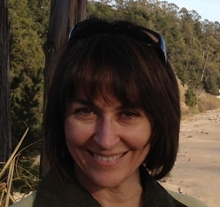Tests. We take them in ways both small and large, formal and informal, throughout our lives. It perhaps begins sometime when we are so small we can barely remember. We learn, usually from our parents, that there are certain things they want us to do--from potty training to riding a bike to swimming--that we cannot perform right away, and we're aware that they're watching us vigilantly until one day, we perform just right, and they let us know we have "passed." It continues throughout our school years in all the familiar ways: from the 50-yard dash in gym class to the essay in English class to the timed test in math class to the solo in music class.
In recent years, tests have moved to the top of many Americans' "most hated" list, largely through the pressure of the federal No Child Left Behind legislation requiring all students to meet state grade standards in reading, mathematics, science, history, and science. Testing has a bad name.
As someone who makes tests for a living, I find the conflict more than a little interesting. I wouldn't have a job if there were not a continuing hunger for evidence of quality and performance, and yet, we don't like tests. Why is it that we're so conflicted about tests? Is it the same reason we're likely to "kill the messenger"? Are we, at heart, uncomfortable with honest, constructive criticism?
I start this blog with these questions. I do not have the answers. I am just doing the work in a hostile environment, trying to understand the hostility. In my heart of hearts, I like to make tests for lots of reasons that I'll explore here. It's a craft that offers a lot of adventure. I get to delve into many different subjects and interview many different subject experts. I get the opportunity to "get into their heads." Then I get to try out ways to define the kinds of reasoning and thinking that these experts value the most in their fields. Finally, I get to invent scenarios that help people show what they can do in those fields. It's a job that is part detective, part script writer, and part butterfly catcher.
Monday, November 10, 2008
Subscribe to:
Post Comments (Atom)




No comments:
Post a Comment